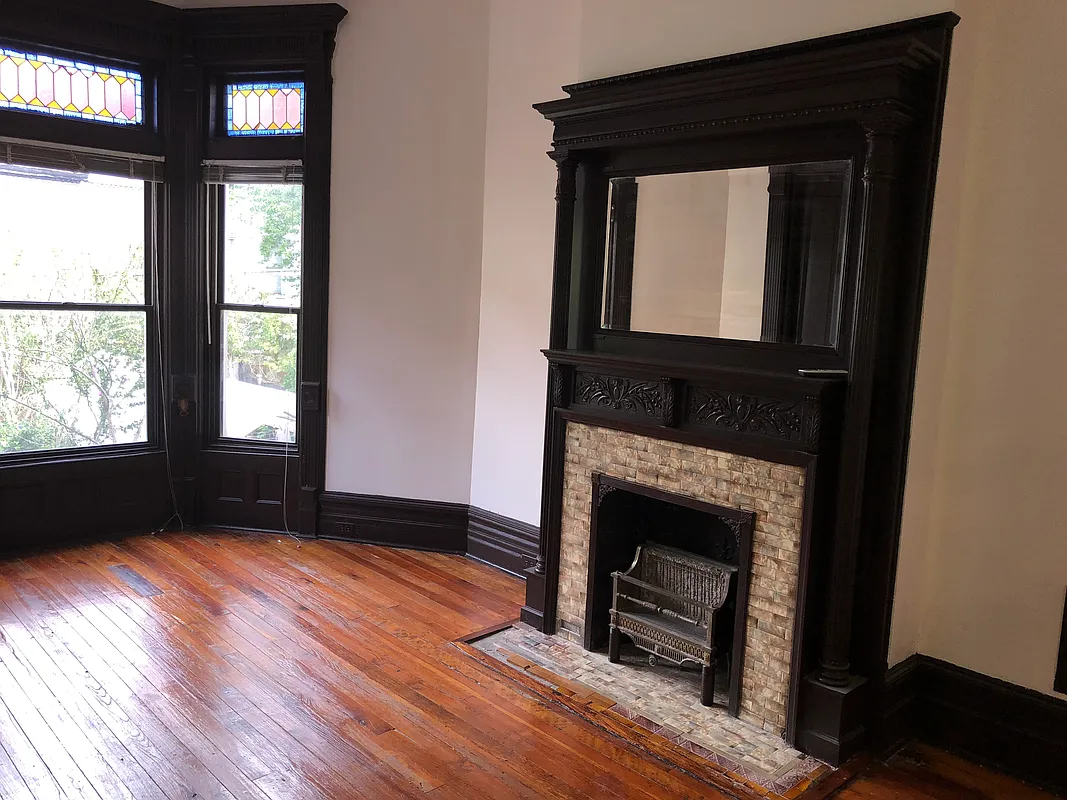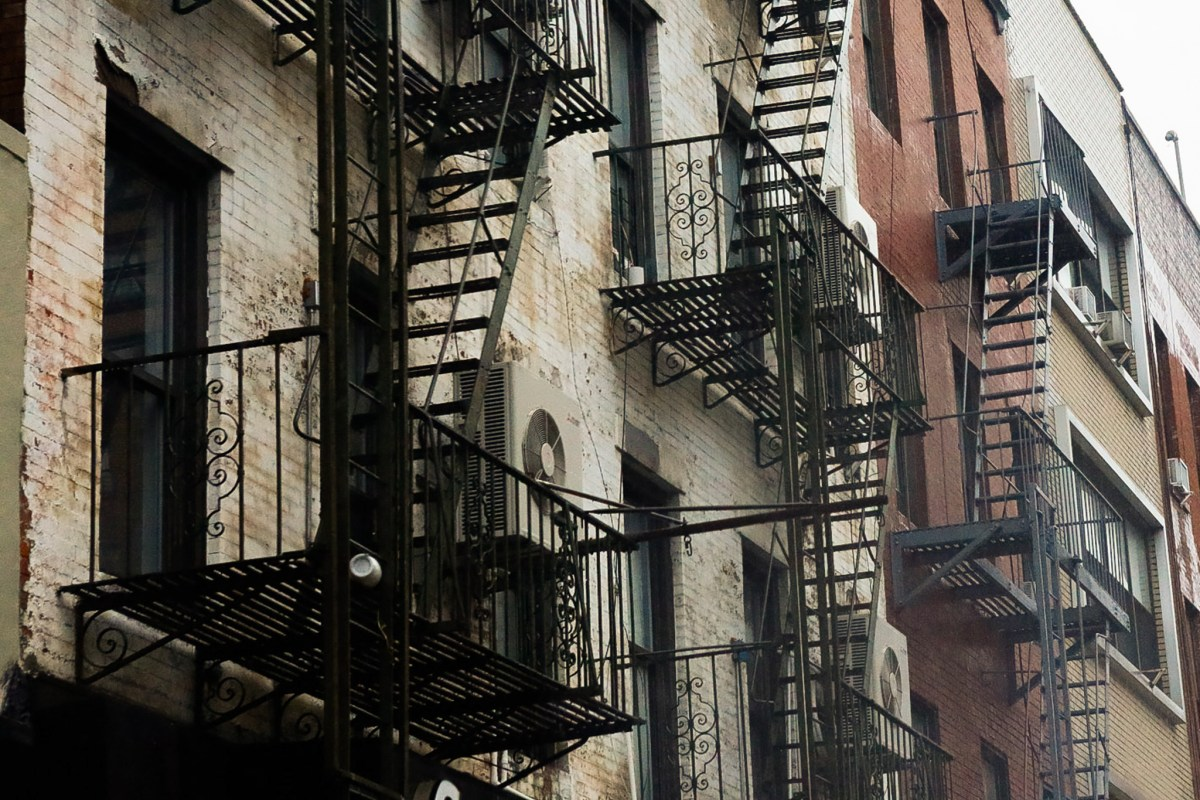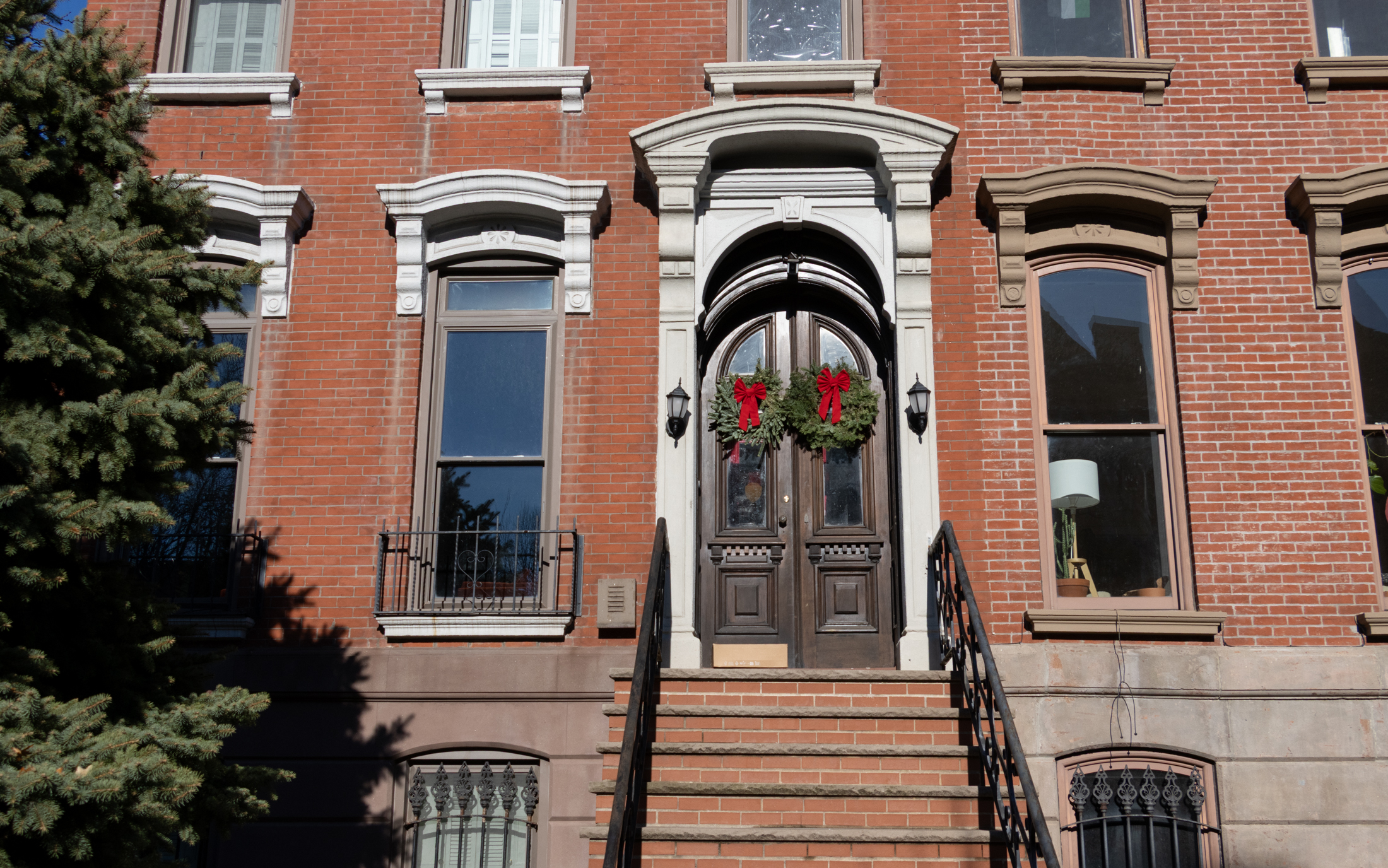Grim Perspective on Mortgage Crisis in Poor Nabes
Former FT scribe and Bed Stuy resident James Doran has a powerful piece on WNYC this morning about how the combination of lending abuse and outright fraud are combining to hit the borough’s poorer neighborhoods like Bed Stuy and East New York particularly hard. I wish I could say that the worst is over but…

 Former FT scribe and Bed Stuy resident James Doran has a powerful piece on WNYC this morning about how the combination of lending abuse and outright fraud are combining to hit the borough’s poorer neighborhoods like Bed Stuy and East New York particularly hard. I wish I could say that the worst is over but the projections for NYC are not good,”says Sarah Ludwig, director of Neighborhood Economic Development Advocacy Project (NEDAP). “What you see is that the foreclosure actions filed are overwhelmingly concentrated in New York’s neighborhoods of color.” Doran reports that the number of mortgage fraud cases on the FBI’s plate quadrupled over the past year. One victim is James LeSure, who’s on the verge of losing the building he’s owned on Bushwich Avenue since 1969. After paying off his mortgage completely, LeSure refinanced a few years ago when, with medical bills starting to pile up, he received a cold-call from a mortgage broker promising to solve all his problems with an expensive ARM that would, the broker said, be refinanced into a fixed-rate loan within a few months. That never happened, and now LeSure is in the process of having his one asset taken away from him. New York Neighborhood Housing Services (NHS) did one study of Bed Stuy that “almost every other house on the block had risky loans that were likely to default.” Update: The transcript and audio are now available on the link.
Former FT scribe and Bed Stuy resident James Doran has a powerful piece on WNYC this morning about how the combination of lending abuse and outright fraud are combining to hit the borough’s poorer neighborhoods like Bed Stuy and East New York particularly hard. I wish I could say that the worst is over but the projections for NYC are not good,”says Sarah Ludwig, director of Neighborhood Economic Development Advocacy Project (NEDAP). “What you see is that the foreclosure actions filed are overwhelmingly concentrated in New York’s neighborhoods of color.” Doran reports that the number of mortgage fraud cases on the FBI’s plate quadrupled over the past year. One victim is James LeSure, who’s on the verge of losing the building he’s owned on Bushwich Avenue since 1969. After paying off his mortgage completely, LeSure refinanced a few years ago when, with medical bills starting to pile up, he received a cold-call from a mortgage broker promising to solve all his problems with an expensive ARM that would, the broker said, be refinanced into a fixed-rate loan within a few months. That never happened, and now LeSure is in the process of having his one asset taken away from him. New York Neighborhood Housing Services (NHS) did one study of Bed Stuy that “almost every other house on the block had risky loans that were likely to default.” Update: The transcript and audio are now available on the link.
Housing Crisis Hits City Hard [WNYC]
NEDAP: Foreclosure Map [WNYC]





Mr. Joist, I don’t understand your insistance on this data. First of all, I think you would be hard pressed to get accurate data, and frankly, is it any of your, or a statistician’s business? Since when do we, as private citizens, require other private citizens to give an accounting of what they do with their money, unless we have IRS after our names? Why should the poor, and especially minority citizens, have to? Big Brother, or more accurately Big Bwana indeed.
You seem to be wanting numbers that categorically say that XX% of minority foreclosures are because they bought a new Lexus and a flat screen – how typical of them, no? Granted, I’m sure a few did, just like most Americans all over the country do, but I would bet, especially amongst seniors, that the vast majority refied to pay medical bills, fix a house with 50 years of deferred maintainance, bury a loved one, or help family.
Most Americans live above their means, including, and maybe especially, people making big bucks. That is not an excuse for people who knew better, gambled and are now losing, but I still say that financial ignorance and and believing financial snake oil salesmen are more to blame than living large.
Mr. Joist, you might find it reasonable to extrapolate from the United State’s huge current account deficit and extremely low savings rate that borrowers have been splurging their proceeds on useless crap, but as you suggest, the anecdotal evidence isn’t up to snuff. You might find that the ultra-low income borrowers, the ones profiled here, haven’t been splurgers, but the flippers of the Inland Empire, Vegas and Miami have. To suggest though, that the poor have been frittering away their inheritance on baubles strikes me as rather Dickensian. It can only be a short while before someone mentions debtor’s prison or the work-house.
Why does Staten Island have such a high concentration of defaults in areas that are not majority black/hispanic?
HI Everyone
I wrote the peice on WNYC this morning and I appreciate all your comments.
I can assure those of you with doubts about he veracity of the data I used, that the numbers of defaults and foreclures have been verified by several independent organisations and are recognised both by national, local and government bodies.
I am especially grateful to Montrose Moris, not just because he/she agrees with me, but because his/her comment elaborates upon and gives great perspective to this widespread and terrible problem that the media simply does not have the time or space to go into in the depth it deserves.
That said, I applaud WNYC for allowing me, a freelance journalist, the time and space to bring this problem to the fore.
Thanks for taking the time to listen
James Doran
Montrose:
A well-reason and articulate argument and an admirable position. You make many good points and I agree with much of what you wrote about Mr. LeSure but my original question remains unanswered.
Most articles covering this topic focus on the fraudulent or high-pressure tactics of the sleazy mortgage brokers or profile a “tough-luck” story like Mr. LeSure’s that pulls at your heart strings. Mr. LeSure’s story is indeed a tragedy and the answer, as you mention, is better education and enforcement. I’m all for NEDAP promoting financial education and letting homeowner’s know about HPD’s free Housing Education Services. http://home2.nyc.gov/html/hpd/html/homeowners/courses.shtml
What I asked for (and which I have yet to see) is a scientific sample of homeowner’s in default or foreclosure that tracks where the PROCEEDS of these loans, deceptively made or not, went. If the data shows that the majority of the borrower’s used the PROCEEDS of these loans for medical emergencies, support of a family after a layoff, etc. … then I’m with you. (No one should have to lose their hard-earned home equity because we can’t seem to pass a national health insurance law.)
My hypothesis is that for every Mr. LeSure there are 10 borrower’s that used the PROCEEDS of these loans, whether they understood the terms or not, to live beyond their means.
You don’t need a Wharton MBA to understand that if you spend more than you make, you’re going to wind-up broke. That’s been true for all races, creeds and colors since the beginning of time.
bravo NiaKnowles..I agree with you…The homes in Bed Stuy are BEAUTIFUL…if they were owned by rich non colored folk then I am sure the first poster would think the would be worth more than 800k…
Hey Montrose Morris — Thanks for totally taking the wind out of my sails. I was about to post a dumb-ass rant about how I didn’t buy because I couldn’t afford it (and still can’t) and aren’t I responsible and smart for not getting into some cockamamie mortgage and neener neener neener, but you saved me from myself with your compassion and intelligence. I’m a renter, but I refuse to be bitter, because I never had to work a menial job (yeah, my parents paid for me to go to college and study THEATRE of all things) or face racism (white girl from Westchester in the house). Pretty much I’ve had the luxury of doing whatever I damned well pleased my whole life, and I have enough formal education and resources to keep myself out of trouble with predators. All I don’t have is a down payment. There’s worse things. So for real, thanks. I was almost an asshole here, but you brought me up short.
copy_gal
the stats show clearly that immigrants were charged higher rates, sold more risky loans, and screwed over with higher rate increases. We’re not talking 2% over the 30 year here, people who can least afford a rate increase are being show rates of 10% or 12% or more!
The reasons are really simple. Mortgages were arranged by people with a financial interest in seeing them signed, but no financial interest in seeing them last. Most of the mortgage brokers just wanted to close the deal at all costs. They therefore preyed on whomever showed the least understanding of the complex products that were available. No surprise the poor and those with poorer language skills get shafted.
Wall street didn’t care because they were packaging up these piles of sh*t in gold foil, the rating agencies were compromised and putting AA ratings on them, and they were selling them to funds to foreigners to anyone.
The boom has now turned to bust and the overhang will depress prices for years, and hit consumer spending hard. Unless the foreclose properties are handled with care entire blocks could suffer from empty and run-down properties which will place additional pressure on neighbors with mortgages who discover their loan is now worth more than their property.
If you discovered your mortgage is now larger than your property value, say by 20%, would you keep struggling to pay it, and pay rises in the rates, or would you seriously just consider walking off? I’d just walk off. Yeah my credit is burned but who can stand renting your house from a bank at higher than market rates?
So why do we accept so phlegmatically financial markets (commercial paper, leveraged buyouts) riddled with refinancing risk and then hurl abuse at home-buyers caught up in the same problem?